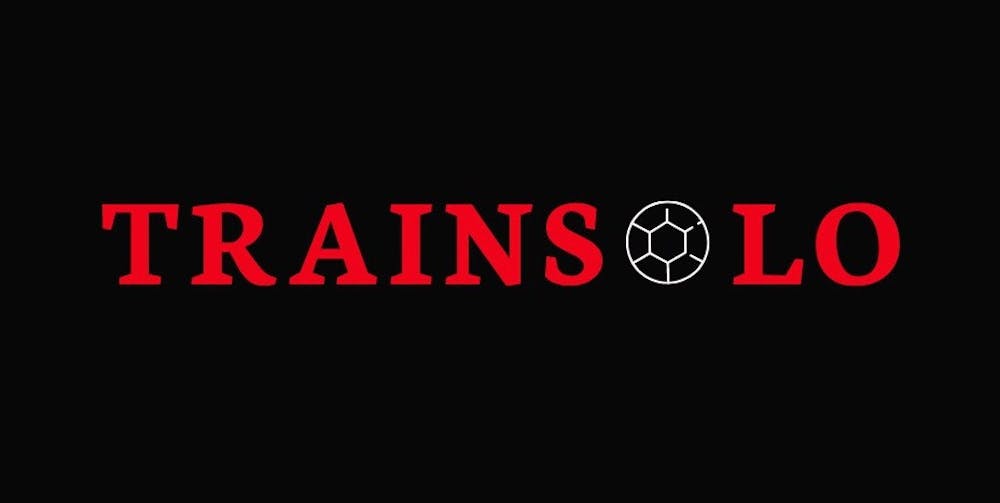When the COVID-19 pandemic first struck Brown’s campus in March 2020, Abby Carchio ’20 and Alex Cooper-Hohn ’23.5 found themselves isolated on campus without access to the coaching and soccer practices essential to their careers as student athletes.
Together, they trained with improvised routines incorporating drills they found on YouTube or followed exercises discovered while surfing the internet. But with Carchio’s plans of playing professionally and Cooper-Hohn’s goal of making the men’s varsity soccer team, the disparity in the quality of instruction they were receiving threatened to limit their aspirations.
Feeling firsthand the toll that a lack of resources can have on student athletes’ careers, Carchio and Cooper-Hohn began to look for ways to ensure a level of training on par with their athletic needs. That’s when they had the idea for Trainsolo: an app that lets soccer players access quality drills and exercises without paying for private lessons.
Teaming up with classmate Greyson Gerhard-Young ’21.5, they worked to set their new idea in motion. Through hours of self-study, Gerhard-Young taught himself XCode, an integrated development environment used to develop software with Apple. Carchio and Cooper-Hohn began to create soccer routines and filmed themselves conducting drill demonstrations.
With hard work, a Kickstarter campaign and support from the Nelson Center for Entrepreneurship, the team launched the beta version of their app — serving 100 high school and college student users.
But the problem of accessibility in athletics long predates the pandemic; historically, sports have faced a pay-to-play disparity that limits the ability of low-income athletes to pursue careers in sports. For many, paying an average of $60 to $80 per hour on private soccer instruction is simply unrealistic.
“If you think about it, you have May, June, July, August all off-season — that’s four months, and a bit of Christmas,” Cooper-Hohn said. During the off-season, “those people who can afford those personal trainers, they’re at a massive advantage.”
By contrast, “those people that can’t afford those personal trainers and the travel teams, they just don’t have the type of training needed to compete at the elite level, so they’re left behind,” Carchio said.
To better cater to the individual needs of its student athlete clientele, Trainsolo features customizable drills and routines. Students can find routines catered to their specific positions, abilities and goals.
“No one else on the market really does personalized sessions. They do one-size-fits-all, and that’s just not effective,” Carchio added. “The app uses algorithms to tailor each session to the needs of the player, which is essentially replicating what the personal trainer would do, at a significantly reduced cost.”
Throughout the process of creating content for the app, the team considered accessibility and audience in other ways, too. Carchio believes that the lack of female representation in sports can make it even harder for women to achieve their goals as athletes.
“We were really incentivized to make sure our application was gender-neutral and that female representation was as equal to (male representation) as possible,” she said.
“I’ve got three sisters and all of them were avid footballers, but they would never watch football because it would always just be male players,” Cooper-Hohn added. “There was never any possibility to play elite-level football because the competition wasn’t there, the coaching wasn’t there.”
During the 2016-17 school year, the college sports recruiting organization Next College Student Athlete estimated that a total of over 427,000 women and 490,000 men played on high school and college-level soccer teams. Moving forward, the team hopes to tap into this large demographic, using social media to advertise to their more than 3,000 Instagram followers.
But even as the team redevelops the app after a successful run of its beta version, they intend to maintain the social consciousness that brought Trainsolo into existence in the first place. Recently, Trainsolo partnered with Football for Peace, a London-based organization that seeks to utilize “football diplomacy” and unite communities through sports, according to the organization's website.
The partnership with FFP will allow Trainsolo to access a larger audience, as well as create “elite-level content production,” potentially even using famous soccer players, Cooper-Hohn said. The team hopes using Instagram to attract users will help keep costs for the app low, he added.
“I’ve learned a lot about coordination, because there’s so many stakeholders (and) moving parts,” Gerhard-Young said. “Getting everyone aligned, getting everyone’s incentives aligned.”
“It’s for a bigger purpose now,” Cooper-Hohn said. “Our vision is to have not only millions of players improving using the app, but also an equal playing field and a huge revenue source of unconstrained funding for social impact.”
For Carchio, the difficulties of growing a startup from the ground up have been worth the lessons learned.
“The short end is startups are not easy. It’s a grind every single day,” Carchio said. “But I think I can speak for all three of us when I say we’ve learned so much over the course of this.”

Jack Walker served as senior editor of multimedia, social media and post- magazine for The Herald’s 132nd Editorial Board. Jack is an archaeology and literary arts concentrator from Thurmont, Maryland who previously covered the Grad School and staff and student labor beats.





